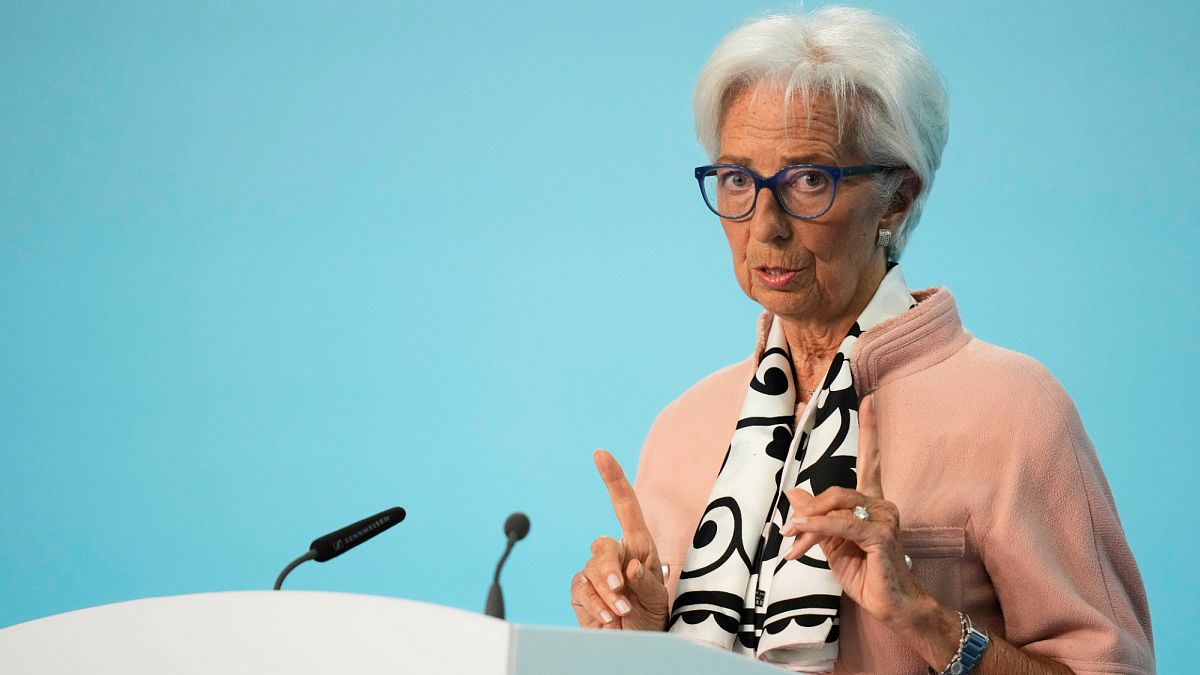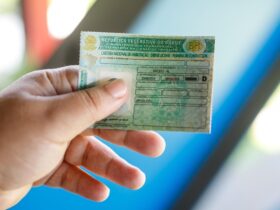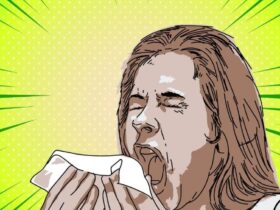When on April 2, US President Donald Trump announced his vast new customs tariffs, he was prepared for a new increase in world inflation. Nevertheless, three weeks later, an increase in the number of economists and politics is the opposite.
In addition to the fueled inflation, customs duties can become a trigger in Europe, which is further reduced by interest rates.
Officials of the European Central Bank (ECB) have already begun to adjust their poses. At the beginning of this month, the Council of the Office unanimously reduced the simplicity of deposits to 2.25 percent, reducing the simplicity of deposits by 25 basic points. ECB President Christine Lagarde implied that 50 -ton move was also discussed.
It seems that the statement of customs in the United States has changed the position in Frankfurt, and politicians now devote the priority of risk of growth.
“We see the tariff effect on the PMI index, the purchase, the intention of recruiting staff in their intention to buy, a set,” he said in an interview this week of Lagarde this week.
Lagarda also stated that the ECB can revise the point of view on growth at the next June meeting.
Low prices for goods, stronger euros, weak demand
Oil prices fell by more than 15 percent since the beginning of April, while the natural gas indicator in the Netherlands lost more than 22 percent.
This cooling in energy markets reflects slower global growth expectations, especially if the US customs tariffs limit the trading flow and reduce the trust of the business world.
At the same time, the euro intensified against the dollar and limited import inflation.
Especially in Europe, another force that offends disinfection is the expected repeated orientation of global goods.
Goldman Sachs economist Giovanni Pirmentinico said that US customs tariffs will create more than $ 300 billion. With a fall in US demand, it is possible that part of this excess from China will turn into Europe.
In the past, approximately 15 percent of excess proposals passed to the eurozone, and this coincided with an increase of 1.5-2 percent in the supply of goods. “We evaluate that this will have a reduced influence of about -1.5 percent at the price level on basic goods, which corresponds to a reduced effect -0.5 percent in HICP,” said Pirdiiko.
“In China, there will be excess capacity and probably want to direct exports to Europe. This will provide a reduction in prices for prices, ”said ECB Lagarde President.
ECB goes to deeper cuts of interest
With a decrease in inflationary pressure, markets increase the rates that the ECB will make an additional decrease in interest rates before the end of the year. The Bank of America, “lower growth, even lower inflation and political interest rates are even larger”, referring to the underestimation of a deposit interest up to 1.25 percent until December, they expect a percentage of deposit.
The bank recently drew attention to uncertainty against tariffs, stronger euros and congestive global demand by reducing the internal product of the eurozone (GDP) to 0.8 percent for 2025 and 1.0 percent for 2026.
Given the fragility against the export economy and tariffs of the automobile sector, Germany is expected to reduce 0.1 percent in 2025. According to estimates, France and Italy will only increase by 0.4 percent and 0.7 percent, respectively.
Falling wage prints contribute to a disinf position. According to him, the manager of the ABN Amro Macro Research Bill Diviney, really wages up to 2.7 percent in the first quarter to the lowest level from the time of Pandemi. “Disinflationist forces mean that the ECB can reduce interest rates to 1.5 percent by September,” he said.
Divine added that the recent value of the euro, tightening financial conditions and reducing energy prices increased the situation for further relaxation. “We believe that inflation will be lower than the 2 -percent goal of the ECB by the end of the year.”
While the ECB responds to the conditions in Europe, the risk of reduction in the United States has been largely revealed. The economist Goldman Sachs Alexander Stott said that most European economies in past cycles are a recession in three quarters of a reduction in the United States. “We are already predicting small abbreviations for Germany, Italy and Switzerland in the third quarter of this year,” Stott said.
Although the complete consequences of the customs duties of President Trump have not yet arisen, the first reaction in the market and politics shows that inflation fears may be exaggerated.
Instead, falling prices for goods, weakening demand and re -orientation of global offers create a disinfected environment that can force the ECS to accelerate the weakening cycle in the coming months.












Leave a Reply